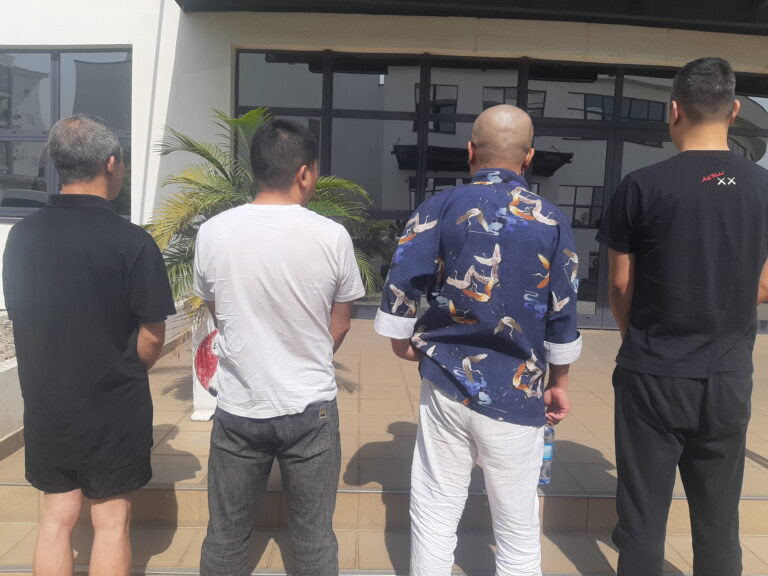EFCC Uncovers Chinese-Led Cybercrime Syndicate: Shocking Details of Abuja Raid
EFCC Uncovers Chinese-Led Cybercrime Syndicate: Shocking Details of Abuja Raid
By Achimi Muktar
In a high-stakes operation that reads like a crime thriller, the Economic and Financial Crimes Commission (EFCC) on January 9, 2025, arrested four Chinese nationals and 101 Nigerians allegedly operating a sophisticated internet fraud syndicate from a business apartment in Abuja’s Gudu district.
The dramatic bust, part of the EFCC’s intensified efforts to combat cybercrime, targeted a group accused of running elaborate scams aimed at businesses and individuals across Europe. According to EFCC spokesperson Dele Oyewale, the operation was a calculated strike to dismantle a network preying on unsuspecting victims through fraudulent hotel reviews.
A Syndicate Unveiled
Among the 105 suspects apprehended were 67 men, including the four Chinese nationals, and 38 women. The group allegedly orchestrated scams designed to defraud victims by exploiting online platforms to manipulate hotel ratings, damaging businesses and exploiting international clients.
The raid, carried out swiftly and efficiently, aligns with the EFCC’s broader mission to stamp out internet fraud in Nigeria. “The suspects will face charges once investigations are concluded,” Oyewale confirmed, underlining the commission’s commitment to accountability.
A Broader Crackdown on Cybercrime
This operation follows a record-breaking sweep in December 2024, during which the EFCC arrested 792 individuals linked to cryptocurrency investment fraud and romance scams. That operation, targeting a high-rise building in Lagos, revealed a syndicate involving foreign criminals training Nigerians in fraudulent schemes.
EFCC Director Wilson Uwujaren detailed the syndicate’s modus operandi. “They exploited Nigerians, training them in romance and investment scams using fake profiles and phishing techniques. Sophisticated tools, including 500 SIM cards and foreign communication lines, were employed to defraud victims in the U.S., Canada, and Europe,” he explained.
A Web of Deceit
Trained Nigerian operatives were tasked with building trust through romantic chats or presenting fake investment opportunities. Victims were lured to fraudulent platforms, charged activation fees, and duped into investing more money. Once trust was established, foreign kingpins took over, isolating the Nigerian accomplices to continue the deception.
EFCC investigations revealed that many Nigerian accomplices were unaware of the full scope of the operation. Paid in cash or through personal accounts, they had no connection to legitimate employers and little knowledge of their handlers’ identities.
The Fight Against Cybercrime
As the EFCC delves deeper, it is collaborating with international partners to trace the syndicate’s global connections. This bust underscores the commission’s unwavering resolve to tackle internet fraud, bringing perpetrators to justice and safeguarding Nigeria’s reputation on the global stage.


















